Space
Sign up for our newsletter
We summarize the week's scientific breakthroughs every Thursday.
-
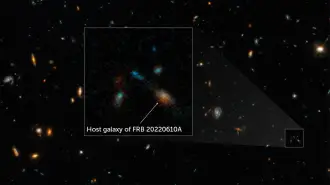 Space
SpaceThe strongest known fast radio burst has been traced to a 7-galaxy pileup
The galactic smashup, located 11 billion light-years from Earth, could have triggered star formation and also odd flares like the fast radio burst.
By Adam Mann -
 Space
SpaceWhy the 2024 total solar eclipse will be such a big deal
The sun will be very active during the next solar eclipse to cross North America, making it an excellent viewing and scientific opportunity.
-
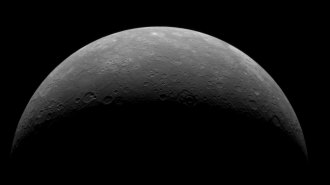 Planetary Science
Planetary ScienceSalt may have carved out Mercury’s terrains, including glacierlike features
Mercury may contain a planetwide cache of salt that has sculpted chaotic terrain and possibly even habitable niches.
By Shi En Kim -
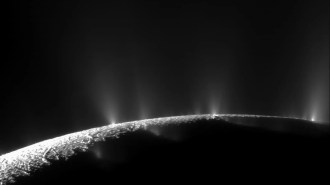 Planetary Science
Planetary ScienceA toxic gas that could help spawn life has been found on Enceladus
Cassini data indicate that hydrogen cyanide, a key building block for life, exists on Saturn’s icy moon. A snakelike NASA robot might test for sure.
By Nikk Ogasa -
 Life
LifeThese scientific discoveries set new records in 2023
This year’s record-breaking findings shed new light on human history and the most amazing feats in the animal kingdom.
-
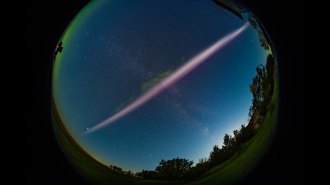 Earth
EarthSTEVE and other aurora-like glows perplex scientists with their complex physics
New views of STEVE from citizen scientists keep raising questions about the atmospheric light show — but computer models may offer some answers.
-
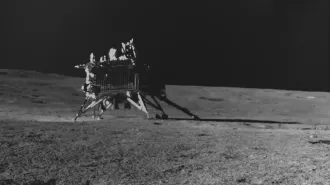 Space
SpaceIn 2023, space missions explored the moon, asteroids and more
This year, spacecraft landed on the moon, dropped off asteroid samples to Earth and started a journey to Jupiter's icy moons.
By Erin Wayman -
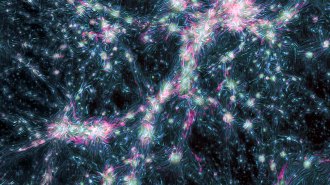 Math
MathHere are some astounding scientific firsts of 2023
Notable feats include discovering a planet-eating star, extracting RNA from an extinct animal and more.
-
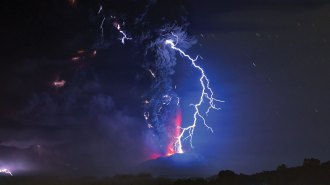 Earth
EarthHere are some big-if-true scientific claims that made headlines in 2023
Hominid cannibalism, “dark stars,” the secrets of Earth’s core and more tantalizing findings will require more evidence before scientists can confirm them as fact.
-
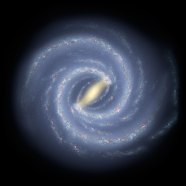 Astronomy
AstronomyA bar of stars at the center of the Milky Way looks surprisingly young
The ages and locations of metal-rich stars in the galaxy suggest the Milky Way’s central bar finished forming just a few billion years ago.
-
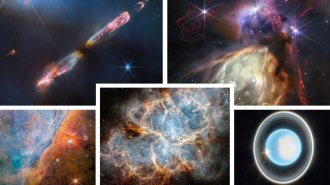 Space
SpaceThe James Webb telescope took some stunning images in 2023
Star nurseries. Planets. Supernova remnants. Here’s a look at some of this year’s stellar JWST images. And the mission is still just getting started.
-
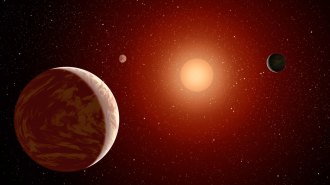 Astronomy
AstronomyHow tiny red stars can test ideas about the origin of life
A survey of ultracool dwarf stars finds they don’t emit enough UV light to kick-start life, but they could reveal other ways for life to get going.